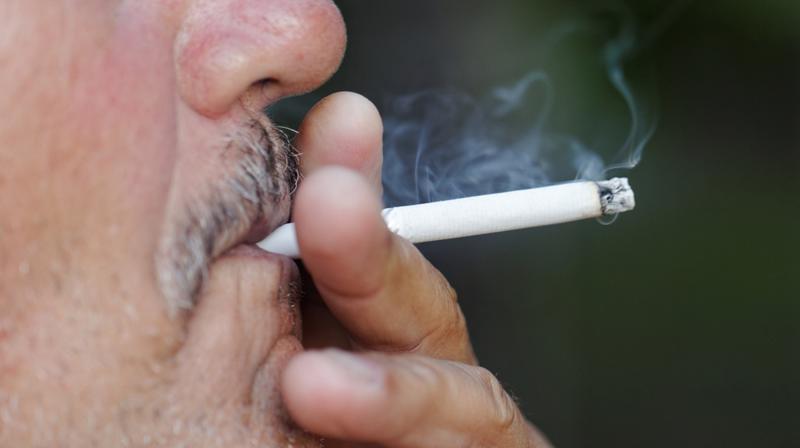Bad breath is a universal symptom: At one point or another, everyone has encountered it, whether the recipient or the unwitting giver. Whether it’s first thing in the morning when your throat is scratchy and dry or after a big meal where pungent, aromatic foods were on the menu (more garlic spread, anyone?), there’s nothing good about bad breath. For most, it’s temporary — an issue you can quite literally brush away with some effective toothpaste, a toothbrush, and some mouthwash for added measure.
For some people, though, bad breath is an unwanted guest that won’t go away, despite their attempts at ridding themselves of it.
While it may be amusing to poke fun at a friend whose breath stinks on occasion, chronic bad breath — halitosis, which is its official name — is a serious issue and one that afflicts millions of people around the world. It may not be life-threatening but it can affect people’s self-confidence and comfort when out in public. Here, we’ll discuss the root causes of halitosis and how you can go about treating it if it afflicts you or a loved one.
What is halitosis?
In simple terms, halitosis is a technical term for persistent bad breath. Frequently, halitosis and bad breath are used synonymously. But halitosis is more specific than breathing out foul-smelling air; it’s doing so regularly, even when you may not be engaging in activities that can lead to bad breath.
What causes bad breath?
There are two ways to look at halitosis and bad breath from a causality standpoint: the root cause and the chemical processes occurring in the mouth that give way to it. In the latter case, a countless number of molecular reactions take place in the mouth at any given time. This is especially true when you’re eating food or drinking a beverage. When food is chewed, residue is left behind that gets trapped within the crevices of your teeth and the surface of your tongue. It doesn’t take long for bacteria to grow. It’s this bacterial growth that creates the unpleasant aroma. Typically, that scent is a crude variation of the aroma given off by a consumed food or a combination of them.
But when bad breath is chronic — i.e. halitosis — other root causes may be involved, some of which may be serious. Here are a few of them:
Dry mouth
Saliva is the body’s natural way of helping to keep the mouth in a moistened state. It constantly regenerates and flows, much like groundwater. But your body may not produce enough saliva for your environment or lifestyle. This can result in dry mouth, the aridness of which contributes to the bad odour since there isn’t enough saliva to freshen things up.
Gum disease
Gum disease may sound like something that is rare in the grand scheme of things relative to other conditions or health ailments, but it’s actually quite common. According to the World Health Organization, it’s estimated that 14% of all adults in the world have serious gum disease. That amounts to around 1 billion people, which is the rough equivalent of India’s entire population.
There are two different primary types of gum disease: gingivitis and periodontitis. Gingivitis — the most common kind of all and also the one that afflicts most New Zealanders among those who’ve been diagnosed, according to the New Zealand Dental Association — is the kind that can lead to halitosis. Plaque contributes to gingivitis when bacteria builds along the gumline. This sticky residue also can make the gums bleed more easily due to inflammation caused by gingivitis.
 In addition to being bad for your health, smoking is bad for your breath.
In addition to being bad for your health, smoking is bad for your breath.Smoking
It ought to go without saying, but cigarettes (in particular) are extremely hazardous to your long-term health because of the many cancerous compounds that they contain. They’re the leading cause of lung cancer in the world. They’re also a breath hazard when breathing in all of the fumes and the chemical compounds that mix with your saliva. Smoking also can lead to dry mouth, which is a known cause of chronic bad breath.
Gastroesophageal reflux disease
Gastroesophageal reflux disease, or GERD, is a disorder that affects the digestive tract and occurs when stomach acids flow in a counterintuitive direction. This means that instead of flowing from your mouth to your stomach through the esophagus, the acids revert and re-enter the esophagus. This can lead to indigestion, heartburn, acid regurgitation and chronic bad breath.
How do you treat chronic bad breath?
The quickest fix to halitosis is consistent and effective brushing and flossing combined with a nutrition plan that limits sugar and emphasizes fruits and leafy green vegetables. But if you’re doing all these things and your breath is still a problem, you should see your dentist. City Dentist is Wellington’s preferred oral care practice. Contact us today to schedule a cleaning.
